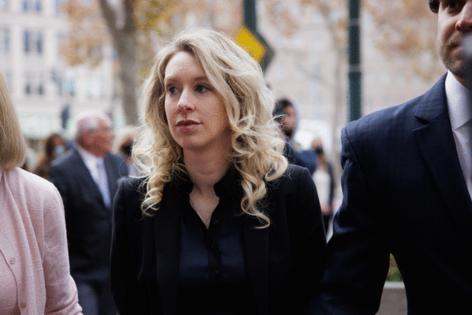Theranos fraudster Elizabeth Holmes keeps fighting, claims appeal judges were confused, illogical and factually mistaken
Published in Business News
Felonious Theranos fraudster Elizabeth Holmes has launched another appeal of her conviction and sentence, claiming that a three-judge panel that shot down her first appeal in February was confused on one point, illogical on another, and made factual mistakes in hearing her case.
Holmes, 41, was convicted on four counts of felony criminal fraud in early 2022 for bilking investors in her now-defunct Palo Alto, California, blood-testing startup Theranos out of hundreds of millions of dollars. She was sentenced to 11 years and three months in prison.
She launched an appeal shortly after her sentencing, arguing that her trial judge Edward Davila in San Jose U.S. District Court improperly allowed some testimony and improperly prohibited other testimony, and let jurors hear about a regulator’s report that could have misled them.
In February, the trio of judges in the federal Ninth Circuit Court of Appeal rejected her appeal, with Judge Jacqueline Nguyen’s written opinion saying, “The vision sold by Holmes … was nothing more than a mirage.”
In a Wednesday court filing, lawyers for Holmes demanded an “en banc” hearing of her appeal by a panel of 11 Ninth Circuit judges, or a re-hearing by the panel that rejected her appeal.
The lawyers alleged that the three-judge panel was confused in its analysis when it found an error by Davila was harmless; that the judges were “illogical” in upholding trial evidence that a federal regulator found Theranos was putting patients in “immediate jeopardy;” and that the panel failed to “engage seriously” with another doctor’s testimony that damaged Holmes’ case.
“The panel’s opinion suffers from significant factual mistakes,” said Holmes’ petition for an en banc re-hearing.
Holmes, a Stanford University dropout, founded Theranos in 2003. She and the company claimed its technology could conduct a full range of medical tests using just a few drops of blood from a finger-prick. But her machines never worked as described, and she was charged in 2018 in connection with $878 million in losses among investors in Theranos, which was once valued at $9 billion. Davila pegged the hit to investors resulting from her criminal conduct at $381 million.
The jury in Holmes’ trial heard evidence that she doctored internal Theranos documents by adding pilfered pharmaceutical companies’ logos to suggest the firms had validated her technology, and that she and Theranos falsely suggested to investors that her machines were in battlefield use. Jurors also heard Theranos provided investors with wildly inflated revenue expectations and that it sought to hide the poor performance of its machines.
In November 2022, Davila sentenced Holmes to 11 years and three months in prison. Holmes, U.S. Bureau of Prisons inmate No. 24965-111, has slashed more than two years off her term, likely through good behavior and taking programs at her minimum-security prison.
The U.S. Department of Justice, which prosecuted Holmes, did not immediately respond Friday to a request for comment on her bid for a re-hearing.
Lawyers for Holmes did not immediately respond to questions about whether, if the Ninth Circuit rejected her petition, she would appeal to the U.S. Supreme Court, or if she is seeking a pardon from President Donald Trump. Legal experts say the nation’s highest court is unlikely to accept her case.
Holmes is scheduled to be released from prison in March 2032.
©#YR@ MediaNews Group, Inc. Visit at mercurynews.com. Distributed by Tribune Content Agency, LLC.












Comments